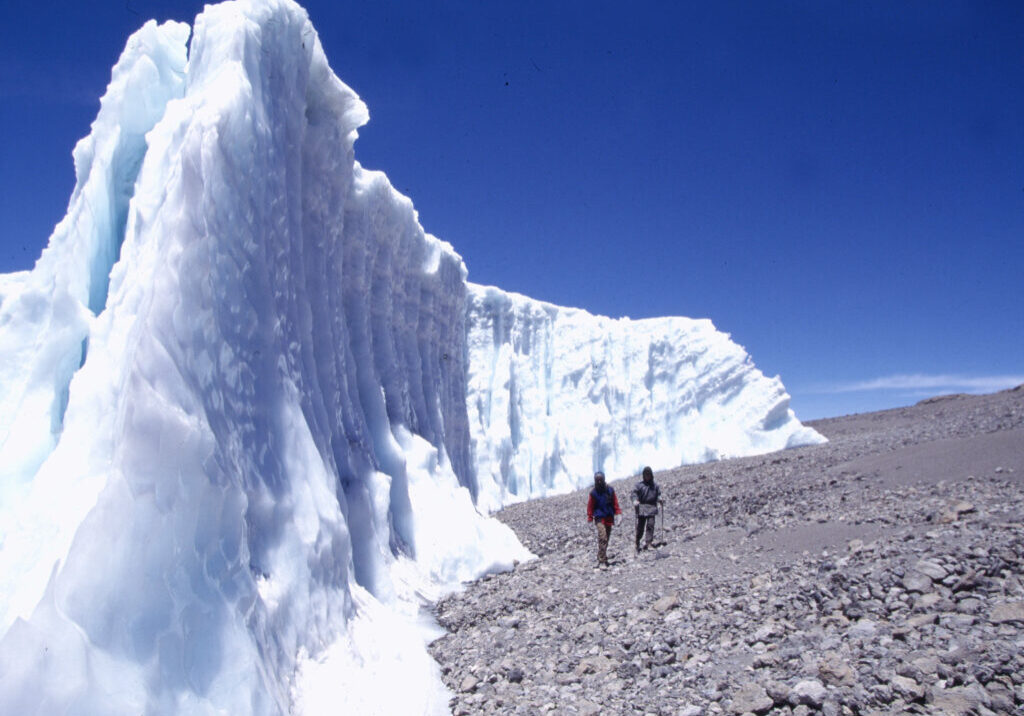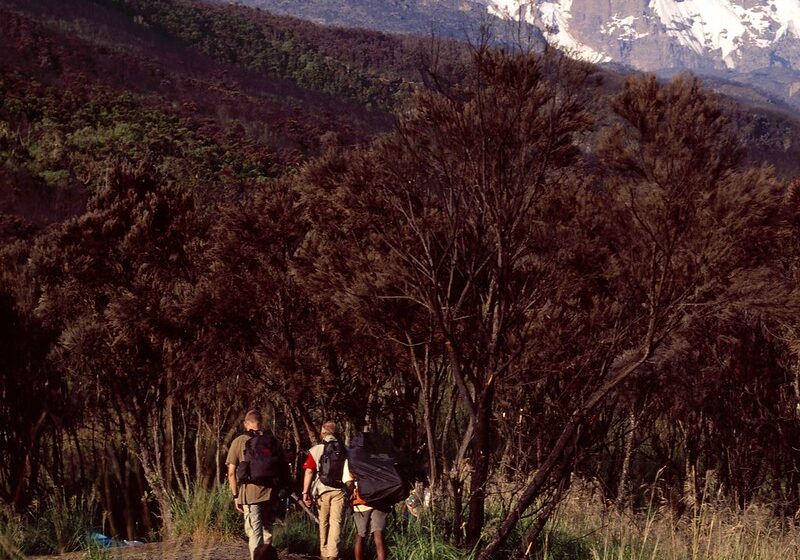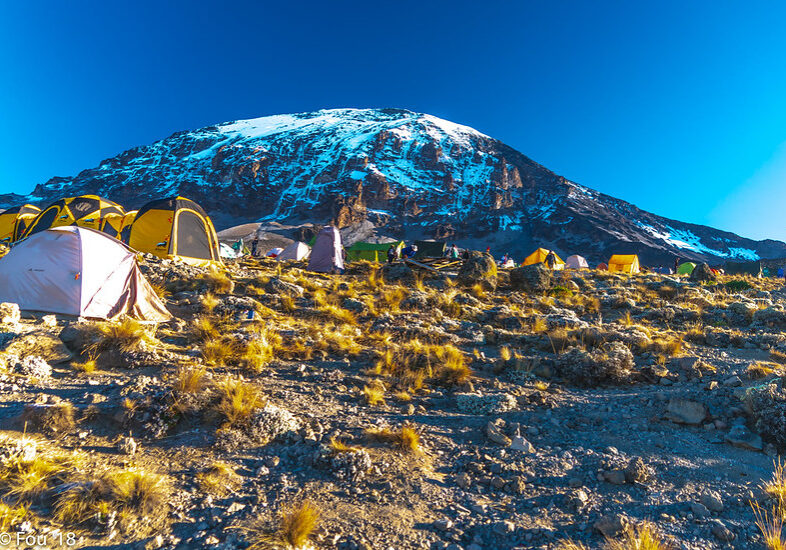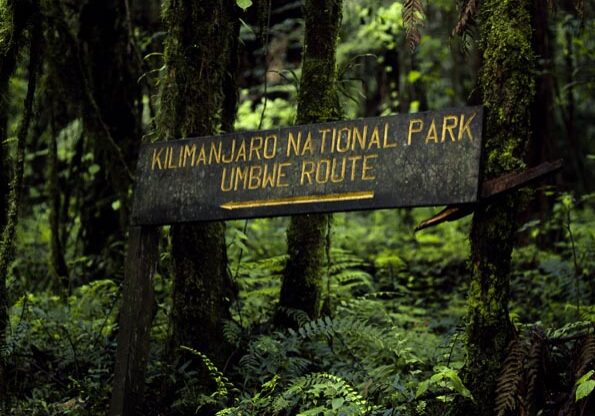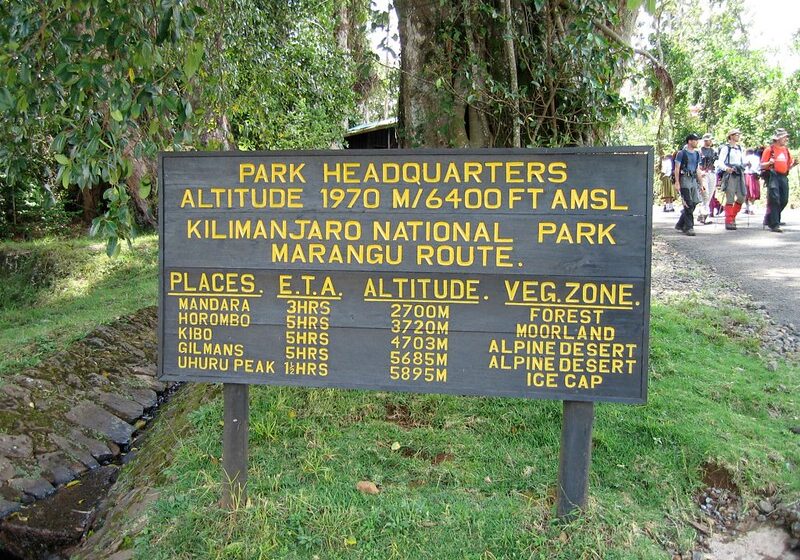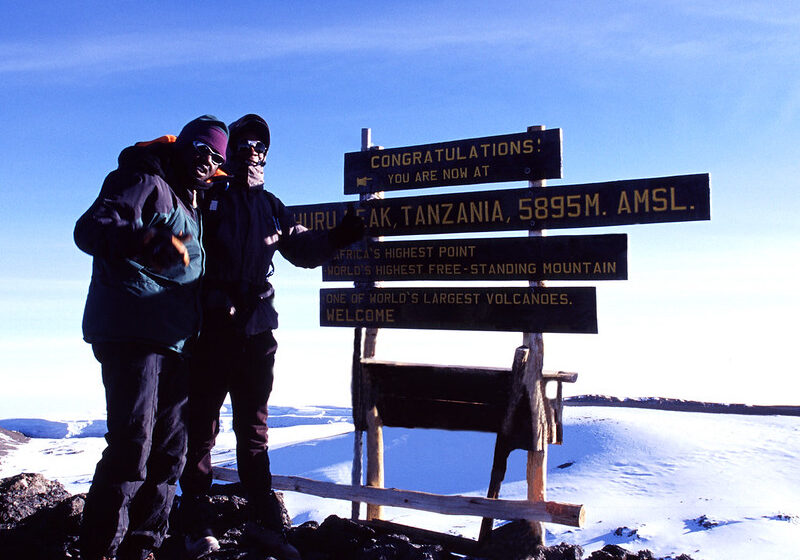
Climbing Marangu Route Mount Kilimanjaro | 6 Days
Itinerary for Climbing Kilimanjaro via Marangu Route
The summit success rate for the Kilimanjaro Marangu route is from 60-85% according to the Kilimanjaro National Park Authority statistics due to the relatively gentle gradient of the route and the fact that climbers have the opportunity to acclimatize at the huts along the way enabling them to reach 5,895 meters (19,341 feet) Uhuru peak summit. The Kilimanjaro Marangu route summit success rate varies depending on various factors such as weather conditions, individual fitness levels, and altitude sickness.
Recommended Marangu Route Itinerary - 6 Days
Marangu Route Detailed Itinerary
Below, you will find a comprehensive 5-night/6-day climb up Kilimanjaro via the Marangu Route. If you would like to shorten your route to 5 days, skip the night of the Acclimatization Day and continue walking straight from the Horombo Huts to the Kibo Huts in one day.
Day 1: Mandara Huts
Once you have finished breakfast, it is time to leave Arusha and head towards the southeast entrance of Kilimanjaro National Park, better known as Marangu Gate. Upon arriving at Marangu Gate, you will be given the time to check in and register. This is where you begin your ascent of Kilimanjaro. The first leg of this route takes you through the woods and the rainforest where you will be able to take in the eucalyptus trees and various species of birds. If you are lucky, you may just spot a Colobus monkey or two – keep an eye out for black or white fur! Make sure you have the appropriate equipment and footwear because the low altitudes can produce wet, muddy soil.
Hiking: 5-7 hours
Overnight Altitude: ~8,858
Habitat: Rainforest
Day 2: Mandara Huts – Horombo Huts
To start off day 2, you will explore the final stretch of woodland as the massive stretch of moorland begins to open up right in front of your eyes. On your walk, you can appreciate the jagged peaks of Mawenzi that ascend up toward the skies of Africa. It is common for people to experience the onset of altitude sickness at these heights. It is important to pay attention to how you feel and communicate with your guide at the first and slightest indication of illness. After reaching the Horombo Huts, you will have time to unpack and experience the view of Kibo before dinner.
Hiking: 5-7 hours
Overnight Altitude: ~12,205
Habitat: Heath/Moorland
Day 3 Acclimatization Day
You will spend an extra day at the Horombo Huts to allow your body to acclimate to the increasingly high altitude. You must stay at camp and relax if you are showing any signs of illness or are feeling especially tired. However, if you feel well-acclimated to the altitude, then you are free to walk up to Mawenzi Hut and admire the incredible view of Kibo and Mawenzi. Keep a steady pace and you walk the route and enjoy the magnificent landscape. Otherwise, you can take a journey to the remarkable Zebra Rocks. This requires a climb of 310 meters.
Hiking: 1-2 hours
Overnight Altitude: ~14,400
Habitat: Heath/Moorland
Day 4: Horombo Huts – Kibo Huts
On day 4, you will walk through varied and strikingly picturesque landscapes. To begin, you will continue across the heath as it slowly turns into the parched, desolate highlands between Mawenzi and Kibo. The scenery here is littered with huge and small volcanic rocks, acting as a testament to the volcanic activity of years past. The final stretch to the Kibo Huts is very steep and physically challenging.
Once you arrive at the Kibo Huts, it is time to organize your equipment and warm clothes for tomorrow’s journey to the peak. To prevent freezing, keep any water your plan on bringing in a thermos. Get to bed early, as the next day’s trek requires a full night’s sleep worth of energy. You are getting ready to take on Kilimanjaro’s most ultimate challenge!
Hiking: 5-7 Hours
Overnight Altitude: ~15,430
Habitat: Alpine Desert
Day 5 Kibo Huts – Gilman’s Point – Uhuru Peak – Horombo Huts
As you awake around midnight, there is just enough time for a small meal before you begin your nightly hike. Many hikers consider the difficult terrain, scattered with loose rocks, to be the most difficult part of the climb. The goal is to reach Gilman’s Point by dawn. This is to make sure that you can make it to Uhuru, the highest point of Kibo, shortly after sunrise. There will be a quick stop at Gilman’s Point to experience the glorious view. Afterward, you will continue along the edge of the crater to Uhuru – this is the last part of the ascent and features a steady incline.
Depending on when you take your journey, you may face snow on the final stretch of the path to Uhuru Peak – the highest point in Africa and the very top of Kilimanjaro. As you reach the peak, an altitude of 5,895, you can congratulate yourself as you experience the astounding view and get a picture in front of the Uhuru Peak Sign.
Now it is time to start back towards the Kibo Huts, you will find that this part goes by incredibly quickly. At the Kibo Huts, you will stop to relax and enjoy a much-needed lunch, before moving along to the Horombo Huts, where you will enjoy a well-deserved full night’s rest.
Hiking: 4-5 Hours
Overnight Altitude: ~12,205
Day 6: Horombo Huts – Marangu Gate – Arusha
As we make the final descent through the rainforest to the Marangu Gate, we will have lunch and say farewell to our mountain crew. Afterward, we will leave Mount Kilimanjaro National Park and drive back to Arusha for a much-need shower and a commemorative dinner!
Hiking: 5-7 Hours
Overnight Altitude: `1,843
Habitat: Alpine Desert
Tour Price for Climbing Kilimanjaro via the Marangu Route
Pricing for climbing Kilimanjaro on the Marangu route ranges from $1,200 to $2,800 per person depending on how many people comprise your group and the number of porters you prefer to go with you on the mountain. It also depends on the number of days you spend on the trek. This price includes the Marangu hut accommodation fees, rescue fees, Kilimanjaro Park fees, and crew wages.
Route Distance for the Kilimanjaro Marangu route
The Lemosho route's total distance is 40 miles or 64 kilometers. This is counted from the Marangu gate on the southern side of Mount Kilimanjaro traversing varying terrain types like rainforests, moorland, and alpine desert. Although Marangu is considered to be one of the easier routes of conquering Kilimanjaro, you still need to be in physical shape with fitness levels to manage the hike.
Talk to Our Marangu Route Specialist
Enquire about the Climbing Marangu route Mount Kilimanjaro Trek and its tour prices.
Talk to our local Mount Kilimanjaro Climbing Specialist to start planning a memorable adventurous experience.

